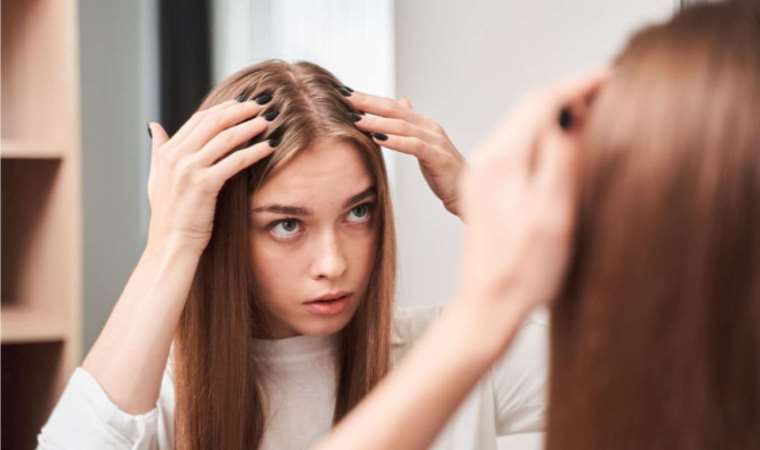Acne, a prevalent skin condition, can manifest not only on the face, back, and chest but also on the scalp.
Scalp acne stems from the same factors that trigger acne in other body areas, including:
- Elevated oil production: The scalp is equipped with sebaceous glands that generate oil. An excess of oil can obstruct hair follicles, leading to acne.
- Accumulated dead skin cells: Dead skin cells can similarly obstruct hair follicles and induce acne.
- Bacterial involvement: Propionibacterium acnes (P. acnes) bacteria can also play a role in scalp acne.
- Other contributors: Additional factors contributing to scalp acne encompass:
- Stress
- Hormonal fluctuations
- Certain medications
- Wearing snug headwear or helmets
- Presence of dandruff
For those who experience scalp acne, various measures can be taken:
- Consistent hair hygiene: Employ a mild shampoo designed for oily hair and wash your hair regularly.
- Cautious product use: Refrain from overusing hair products, which can accumulate and obstruct follicles.
- Thorough post-wash rinsing: Ensure a comprehensive rinse after shampooing to eliminate potential soap or shampoo residue that might clog follicles.
- Regular scalp exfoliation: Exfoliation aids in the removal of dead skin cells that could obstruct follicles. Options include using a gentle scrub or a dedicated scalp brush.
- Medical consultation: Professional guidance is recommended in severe cases of scalp acne. A physician might prescribe topical treatments or oral antibiotics.
Consider these additional pointers to prevent scalp acne:
- Maintain clean and dry hair.
- Avoid tight-fitting headwear or helmets.
- Manage stress levels.
- Adopt a nourishing diet.
- Prioritize adequate sleep.
Consulting a doctor is essential for individuals struggling with scalp acne to eliminate alternate potential causes like dandruff or folliculitis. Most examples of scalp acne can be resolved through appropriate treatment.
Here are some further considerations:
- Scalp acne symptoms can vary, encompassing small red bumps to larger, more discomforting pimples.
- The condition can evoke embarrassment and discomfort. Seeking medical advice, whether from a general practitioner or dermatologist, is pivotal. They can tailor a suitable treatment strategy to your distinct situation.
- Scalp acne defies a universal treatment approach. The optimal course of action hinges on acne severity and underlying triggers.
- Patience is key when managing scalp acne, as finding an effective treatment may requires some time.
- In case over-the-counter remedies yield minimal results, consulting a healthcare professional or dermatologist is advised. They might prescribe potent medications or recommend alternative treatments.


















